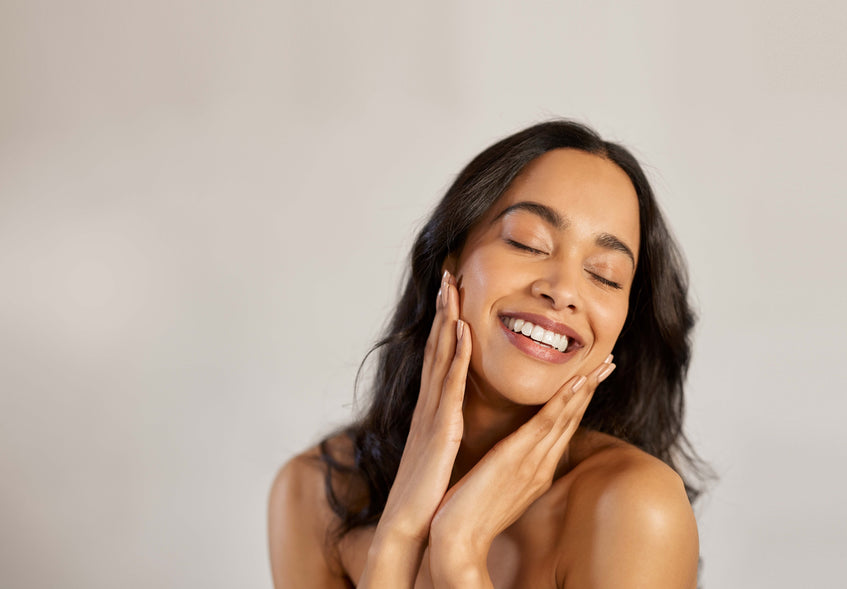
Apr 15, 2025
Mastering Your Curly Hair Journey: The Ultimate Luxury Product Guide
If you've got curly hair, you'll know exactly what I'm talking about when I say that it's both a blessing and a challenge. That gorgeous volume and...
Read NowYour treatment will be tailored based on your skin analysis in your initial consultation.
The introductory offers includes a skin consultation and a 1 hour session.
We use a variety of the best non-invasive skin therapy equipment and the best in luxury skincare products to achieve amazing results.

We use a variety of the best non-invasive skin therapy equipment and the best in luxury skincare products to achieve amazing results.
Acne scars – those reddish brown marks left on your skin after severe acne has cleared – are more than just an unpleasant reminder of your battle with breakouts. They’re the result of your body’s response to inflamed acne lesions when your follicles get congested with oil, dead skin cells, and bacteria.
Your body’s healing process, which involves collagen production, is a key player in forming acne scars. However, when your body produces too little collagen, scars take shape. Picking or popping your acne doesn’t do your skin any favours either; it hampers the healing process and can cause further infection.
Not everyone’s skin tells the same story. Some individuals, due to genetic predispositions or darker skin tones, may find themselves more prone to acne scars or post-inflammatory hyperpigmentation. The good news is that with the right treatment and care, many acne scars can be averted or reduced.
Acne is primarily caused by a combination of factors including hormonal changes, excess oil production, clogged hair follicles, and inflammation. Hormonal fluctuations, particularly during puberty, can increase oil (sebum) production in the skin. When this excess oil mixes with dead skin cells, it can clog the pores, creating an environment where bacteria, specifically Propionibacterium acnes (P. acnes), can thrive. This bacterial growth can lead to inflammation and the formation of pimples or acne cysts. Other contributing factors include genetic predisposition, diet, stress, and certain medications. Acne is not caused by poor hygiene; in fact, over-washing or excessive scrubbing can irritate the skin and aggravate acne symptoms.
It’s only natural to be curious about the expected costs when searching for an acne scar treatment Sydney-wide. The short answer is that the price really depends on factors such as where you go for treatment, how severe your acne scars are, and how big the area to be treated is.
But remember that when it comes to your skin, it’s not just about price. Think about the clinic’s reputation, how skilled their doctors are, the range of treatments they offer, and how well they tailor the care to you. So yes, treating acne scars will cost you some money, but picking the right clinic is not just about saving money – it’s about feeling safe and confident with the procedure.
Cost of further sessions varies depending on what our beauty therapists identify as the best course of treatment for your skin concerns.
Age and skin type are usually not major obstacles when it comes to treating acne scars. Once your active acne settles down, you can explore options to tackle those lingering scars, whether they’re pitted acne scars, cystic acne scars, or severe acne scars.
However, it’s crucial to chat with a professional before getting an acne scar treatment Sydney locals approve of. They’ll consider your age, skin type, and other individual factors and guide you towards the most suitable treatment option.
Are you ready to tackle those pesky acne scars? We understand if you’re wondering when you’ll start seeing results, but let us tell you, it’s not a one-size-fits-all kind of answer. Different treatments work their magic at different speeds. If you opt for laser resurfacing or micro-needling, for example, you might start noticing changes within a few weeks.
Apr 15, 2025
If you've got curly hair, you'll know exactly what I'm talking about when I say that it's both a blessing and a challenge. That gorgeous volume and...
Read NowMar 21, 2025
For centuries, gold has been revered for its beautifying and healing properties. Cleopatra famously slept in a gold mask to maintain her radiant sk...
Read NowJan 15, 2025
When it comes to flawless foundation application, choosing the right tool matters. Should you use a brush for precise coverage, a sponge for a natu...
Read NowOct 25, 2024
Uneven skin texture can make achieving a smooth complexion feel impossible. In this guide, we dive into the common causes behind rough or bumpy ski...
Read NowOct 07, 2024
Skin fasting is a growing trend in skincare, promoting a temporary break from products to allow your skin to reset naturally. Detox your skin and ...
Read Now
Beauty Affairs: An Acne Scar Treatment Sydney Locals Love
Acne scars – those reddish brown marks left on your skin after severe acne has cleared – are more than just an unpleasant reminder of your battle with breakouts. They’re the result of your body’s response to inflamed acne lesions when your follicles get congested with oil, dead skin cells, and bacteria.
Your body’s healing process, which involves collagen production, is a key player in forming acne scars. However, when your body produces too little collagen, scars take shape. Picking or popping your acne doesn’t do your skin any favours either; it hampers the healing process and can cause further infection.
Not everyone’s skin tells the same story. Some individuals, due to genetic predispositions or darker skin tones, may find themselves more prone to acne scars or post-inflammatory hyperpigmentation. The good news is that with the right treatment and care, many acne scars can be averted or reduced.



